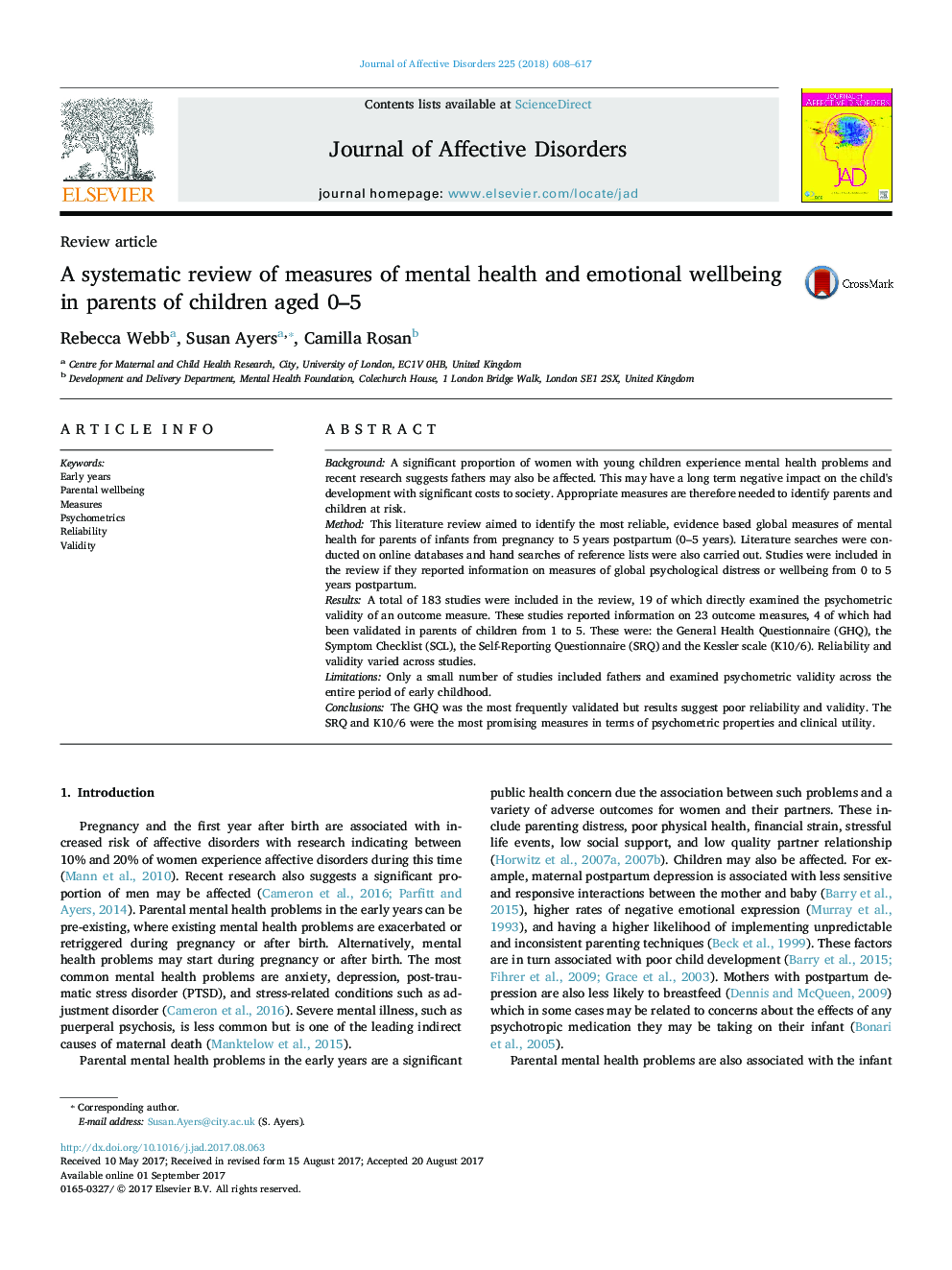| Article ID | Journal | Published Year | Pages | File Type |
|---|---|---|---|---|
| 5721767 | Journal of Affective Disorders | 2018 | 10 Pages |
â¢Measures of parents' wellbeing from pregnancy to 5 years postpartum were reviewed.â¢Nineteen measures were found which had been used with parents during this time.â¢Only four studies validated measures in early childhood (ages 1-5).â¢The SRQ and K10/6 were the most promising measures.â¢The GHQ had poor psychometric properties when used with parents during this time.
BackgroundA significant proportion of women with young children experience mental health problems and recent research suggests fathers may also be affected. This may have a long term negative impact on the child's development with significant costs to society. Appropriate measures are therefore needed to identify parents and children at risk.MethodThis literature review aimed to identify the most reliable, evidence based global measures of mental health for parents of infants from pregnancy to 5 years postpartum (0-5 years). Literature searches were conducted on online databases and hand searches of reference lists were also carried out. Studies were included in the review if they reported information on measures of global psychological distress or wellbeing from 0 to 5 years postpartum.ResultsA total of 183 studies were included in the review, 19 of which directly examined the psychometric validity of an outcome measure. These studies reported information on 23 outcome measures, 4 of which had been validated in parents of children from 1 to 5. These were: the General Health Questionnaire (GHQ), the Symptom Checklist (SCL), the Self-Reporting Questionnaire (SRQ) and the Kessler scale (K10/6). Reliability and validity varied across studies.LimitationsOnly a small number of studies included fathers and examined psychometric validity across the entire period of early childhood.ConclusionsThe GHQ was the most frequently validated but results suggest poor reliability and validity. The SRQ and K10/6 were the most promising measures in terms of psychometric properties and clinical utility.
